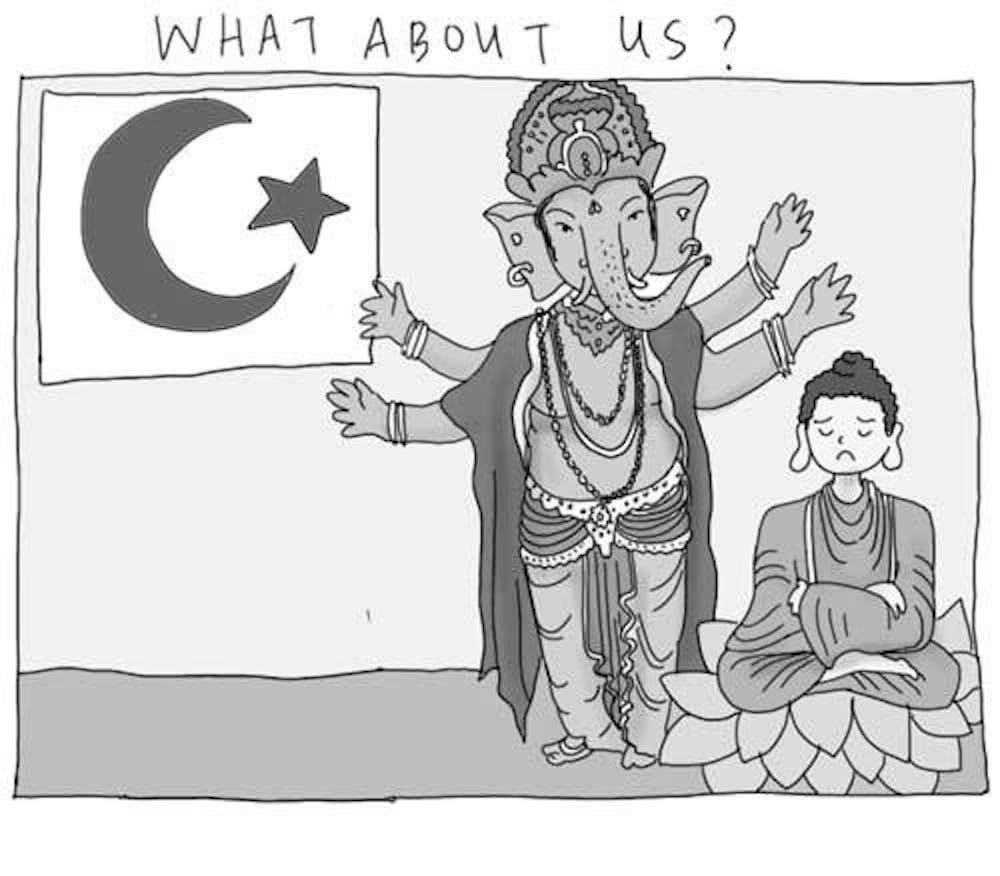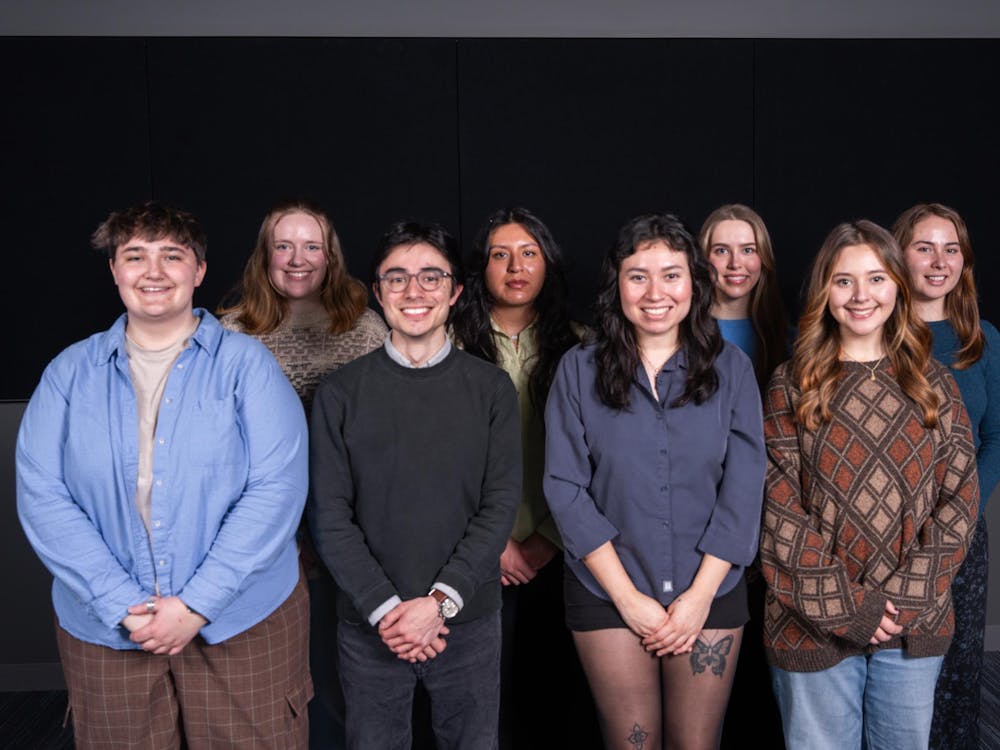(Ann Truong | THE BEACON)
By
A broad worldview is perhaps the most important skill UP's core curriculum can impart and yet it is choosing to alter one of its only culturally diverse courses.
Changing Theology 101 from "World Religions" to "Christian Theology" is a step in the wrong direction for many reasons. The change does not correspond with UP's overall mission, makes UP's core curriculum even less culturally relevant and boxes in spiritual development.
Proponents of this change might look to the first sentence of UP's mission statement to rationalize the switch: UP is "an independently governed Catholic university guided by the Congregation of Holy Cross."
Yes, UP is a Catholic school and we all knew what we were signing up for when we chose to come here. However, The Beacon would also point to other lines of the mission statement such as UP's goal to address "significant questions of human concern," such as, which faith do I believe in? UP also declares itself to be "a diverse community of scholars." The move towards Christian only theology sets back both these goals as it sidelines spiritual inquiry and diversity of religious teaching.
The part of the mission statement most hindered by the change is the need to "prepare people who respond to the needs of the world and its human family." Ignoring more than half the world's faith systems does not create culturally competent scholars. It breeds the very ignorance UP vows against.
One of the undervalued parts of going to a Catholic university is the opportunity to learn about faith. There are no theology requirements in state schools, and here we are challenged to develop the spiritual aspect of our lives. The theology department's choice to close-off that spiritual exploration to just Christian theology is stifling and counterproductive.
World religions effectively introduces theology and the cultures that practice them. Not only is it a great way of teaching all UP students the basics of theology around the world, but it also creates a stress-free environment to introduce the Christian faith to UP students who don't come from a Christian background. If the theology department's goal with Theology 101 is to introduce students to the concept of faith in any context and get across the Catholic/Christian messages the University desires, then World Religions seems a happy medium.
With Bibtrad, a semester of the core is already dedicated to learning Christian scripture and the background of Christian theology. Do we really need an entire year dedicated to the teachings of one religious tradition? It seems extravagant to force every student to spend six credit hours of the core curriculum on one religious background.
UP administrators and the theology department have the right and power to do whatever they want with the core curriculum, but that doesn't mean we don't have the right to protest those changes. Hopefully this proposed change to the core curriculum will create a healthy debate about the need to include teachings on every faith in our core curriculum. The Beacon implores the theology department and UP administrators to reconsider their decision to axe this important area of study.
Editorial Policy The editorial reflects the majority view of The Beacon Editorial Board. The editorial does not necessarily reflect the opinions of the collective staff or the Administration of the University of Portland. Other submissions in this section are signed commentaries that reflect the opinion of the individual writer. The Student Media Committee, providing recommendation to the publisher, oversees the general operation of the newspaper. Policy set by the committee and publisher dictates that the responsibility for the newspaper's editorial and advertising content lies solely in the hands of its student employees.








